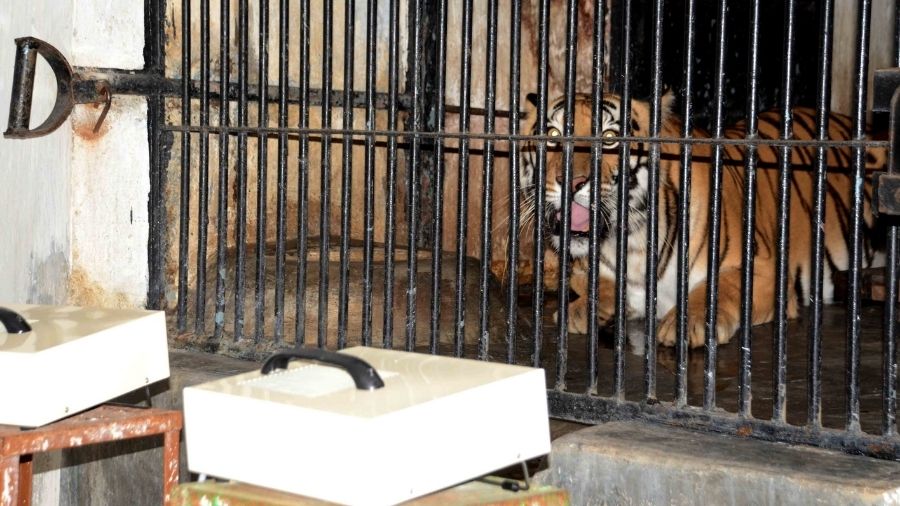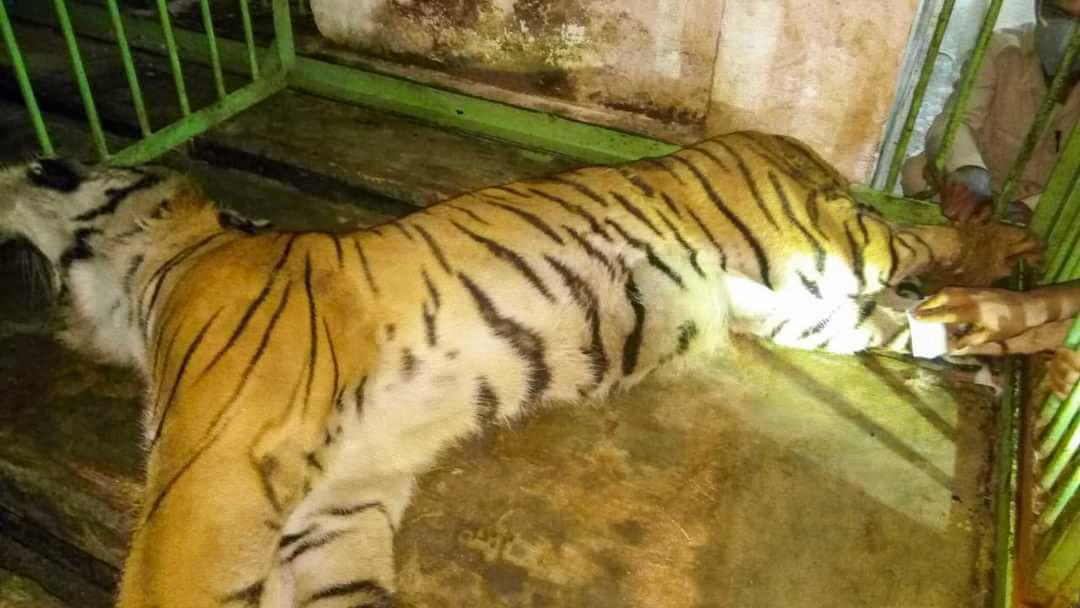Shiva, a 10-year-old male tiger died at Ranchi Zoo on Thursday night after suffering from fever since Tuesday, sending authorities into a tizzy over fears that the animal may have contracted a coronavirus infection.
While it tested negative for Covid-19 on Friday morning, zoo authorities are not taking any chances and have decided to send the samples for further testing at IVRI Bareilly.
Reportedly, eight Asiatic lions in Hyderabad zoo had tested positive for Covid-19 in May this year. However, the Union environment ministry thereafter stated the infection was not caused by any variant of concern and noted that there was no factual evidence currently available about animals transmitting the disease to humans any further.

Shiva at the Ranchi zoo earlier. Picture by Manob Chowdhury
Bhagwan Birsa Biological Park director Y.K. Das confirmed the death of the tiger while talking to reporters in the morning, stating that the striped creature first fell ill on Tuesday but was under treatment. “On Thursday, it completely stopped eating, causing an unfortunate death. It’s a sad day for the zoo,” he said.
Zoo doctor O.P. Sahu said that they have collected blood, lung and swab samples for further testing at IVRI Bareilly. “It is difficult to say if it was by any chance infected with Covid-19 but amid the ongoing pandemic, one can’t say anything for sure. Since we don’t have any specialised test kit for animals, we performed a test on a RAT kit used for humans which came negative. But to ascertain further and to know the actual cause of the death, we have sent the samples to IVRI Bareilly,” he said.
Sources said that Shiva had high fever on Tuesday after which the zoo got in touch with Dr Praveen Kumar, a veterinarian at Birsa Agriculture University (BAU) for assistance. After medication, it showed improvement the next day but its food intake had fallen. “Its lungs seem to be heavily damaged,” said another staff member.
Shiva came to Ranchi Zoo on November 24, 2014. Following its demise, the zoo is now left with nine tigers including six males. The 104 hectare park has over 1,200 animals across around 100 species. The zoo has been closed since the outbreak of the pandemic in March last year.










